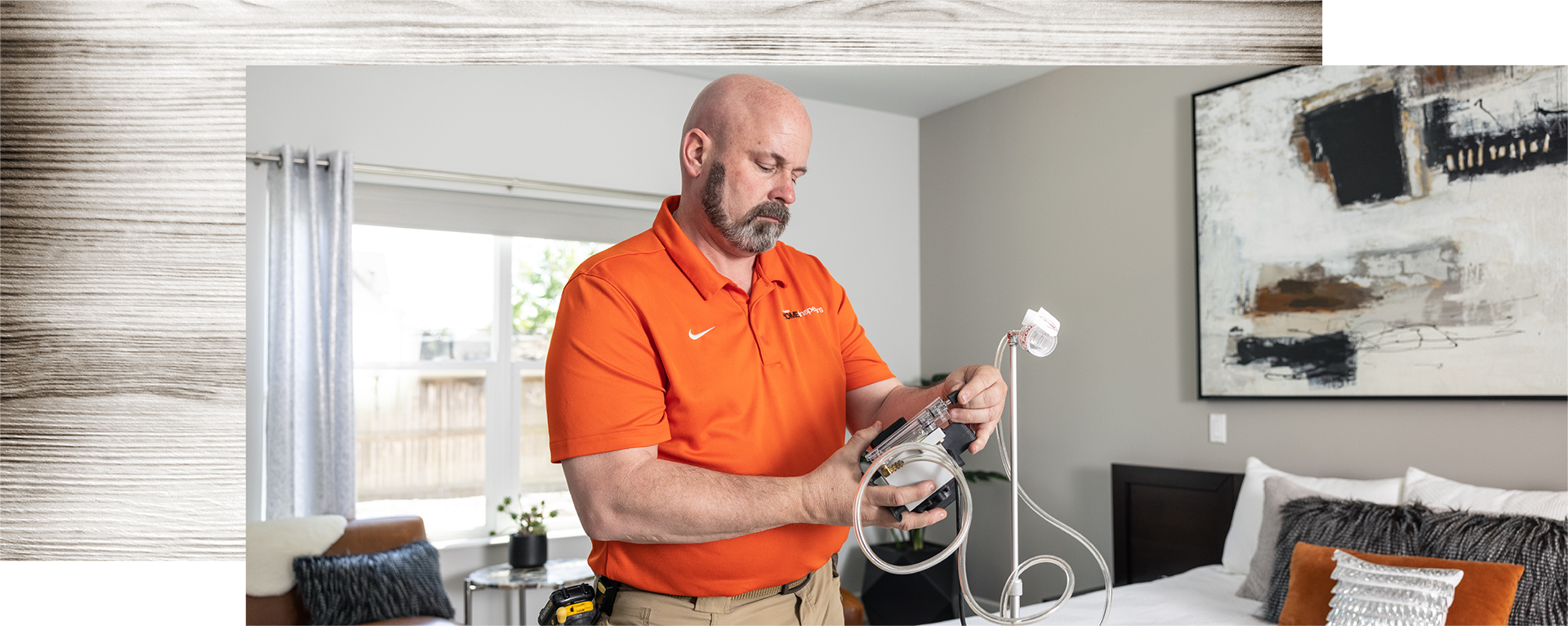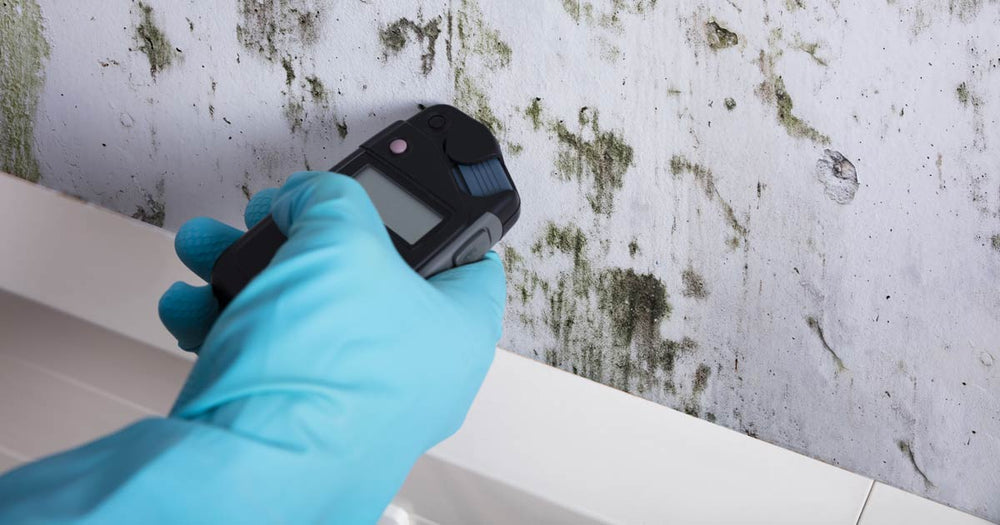Secure Your Home with Comprehensive Inspection and Mycotoxin Testing Services
How Mycotoxin Screening Solutions Can Shield Your Family Members From Hidden Dangers
In an era where health and wellness are extremely important, mycotoxin screening services become a crucial line of defense versus the unseen risks lurking within our homes and food resources. These perilous toxins, commonly resulting from mold growth, have the prospective to compromise body immune systems and inflict serious body organ damages. By using exact detection and evaluation, mycotoxin testing not just discloses the visibility of these concealed risks yet likewise offers workable steps for removal. As families make every effort to maintain a healthy living atmosphere, comprehending the auto mechanics and advantages of expert mycotoxin testing ends up being increasingly critical. But how specifically do these services work to guarantee your household's security?
Understanding Mycotoxins
Just how do mycotoxins influence food safety and security and public wellness? Mycotoxins are normally taking place contaminants created by certain molds, which can be found on crops and food. These mold and mildews usually grow in cozy and moist conditions, making agricultural commodities such as nuts, grains, and fruits especially vulnerable. The visibility of mycotoxins in food postures a significant problem for food security, as they are not easily destroyed by handling or food preparation. Their strength necessitates rigorous testing and monitoring to avoid contamination throughout the food supply chain.
The economic ramifications of mycotoxin contamination are profound, influencing both international and domestic trade. Polluted batches can lead to substantial economic losses because of item recalls, decreased market value, and lowered customer self-confidence. Strict regulative standards have actually been established internationally to limit mycotoxin levels in food and feed products. These standards objective to reduce their influence on food safety, ensuring that food stay risk-free for usage.
Comprehending the resources and paths of mycotoxin contamination is crucial for establishing efficient control strategies. Comprehensive mycotoxin testing solutions play an important role in securing public wellness by identifying and measuring these toxins, therefore enabling stakeholders to implement proper and prompt treatments.

Wellness Risks of Mycotoxins
The perilous nature of mycotoxins positions significant health threats to humans and animals alike. In human beings, chronic exposure to mycotoxins can lead to a variety of wellness concerns, consisting of immune reductions, liver damage, and a boosted threat of cancer cells.
The transfer of mycotoxins right into animal-derived products poses an extra threat to human wellness. Identifying these threats highlights the significance of watchfulness in monitoring and regulating mycotoxin levels to guard public health and food safety.
Just How Screening Functions
Provided the substantial health and wellness dangers presented by mycotoxins, carrying out trusted screening methods is important to ensure food safety. Mycotoxin testing largely entails the detection and metrology of these toxic compounds in food and feed items. The testing process starts with sampling, where depictive samples are gathered from a batch to make certain accuracy. These examples are then prepared with grinding and homogenization to achieve uniformity.

Mass spectrometry (MS) is often coupled with HPLC for enhanced uniqueness and confirmation of outcomes. This mix, called LC-MS/MS, is considered a gold requirement in mycotoxin testing. Advanced innovations, such as molecular inscribing polymers (MIPs) and biosensors, are emerging to use much more accurate and effective screening solutions. These techniques collectively ensure that food are within safe mycotoxin limitations, guarding consumer health.
Selecting a Screening Solution
Picking the best mycotoxin testing solution is important for making certain food safety and security and governing conformity. With the growing understanding of the threats postured by mycotoxins, choosing a solution that is trustworthy, precise, and efficient comes to be critical. The very first step in this process is to inspect for certification. Trusted screening solutions are commonly accredited by identified bodies, ensuring they stick to international criteria and use verified techniques.
Furthermore, take into consideration the range of testing used by the service. Comprehensive testing must cover a large range of mycotoxins, given the diversity of these poisonous substances. A solution with advanced logical methods, such as liquid chromatography-tandem mass spectrometry (LC-MS/MS), can give accurate results, enabling you to attend to possible dangers effectively.
Turn-around time index is another crucial factor. In scenarios where fast decisions are necessary, a solution with efficient handling times can be important. In addition, the arrangement of detailed reports, consisting of recommendations and analyses, will certainly help in understanding the ramifications of the findings.
Finally, consumer support should not be ignored. A screening solution that offers expert guidance and clear communication throughout the procedure can considerably improve the general experience, making sure notified choices are made to protect your household from concealed dangers.
Actions for a Safer Home
Producing a much safer home setting involves numerous positive steps to reduce the risks connected with mycotoxins. It is important to perform a complete evaluation of your home to recognize potential resources of mold development.
Next, take into consideration spending in a professional mycotoxin testing service. These services can recognize the presence of dangerous mycotoxins and supply guidance on needed remediation initiatives. This action is vital in comprehending the certain threats present in your house and taking targeted activities to eliminate them.
Improving ventilation is one more essential step. additional reading Make certain that your home has appropriate air flow to minimize moisture degrees, which can prevent mold and mildew growth (Mycotoxin testing Services). Use exhaust fans in kitchen areas and restrooms and consider a dehumidifier in especially wet locations
Lastly, click preserve routine cleansing practices using mold-inhibiting products, and screen humidity levels with a hygrometer. Keeping moisture degrees listed below 60% can substantially reduce mold growth potential. By following these steps, you can produce a much safer space, safeguarding your family from the surprise threats of mycotoxins.
Final Thought
Mycotoxin testing services are vital in identifying and mitigating the risks positioned by mold-related toxic substances in food and home atmospheres. By identifying and evaluating harmful mycotoxins, these solutions play an essential duty in preventing health concerns such as immune reductions and liver damage.
